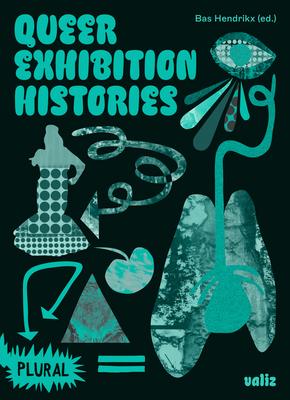Case studies at the intersection of art history and queer politics--from landmark exhibitions both institutional and underground to museum policies and art activism
This anthology gathers case studies from the history of queer art exhibitions and their modes of documentation and archiving. The legacy of these projects often depends on personal archives, and consequently "public" is a relative term for events that were either short-lived, held in domestic spaces or only for those in the know. At the intersection of queerness and contemporary art, this volume considers how the efforts of LGBTQ artists have advanced their public presence in museums and society alike.
Case studies include Storefront for Art and Architecture's 1994 Queer Spaces exhibition and the Cruising Pavilion at the 2018 Venice Architecture Biennale; the "Queer Kharkiv School of Photography"; Martha Rosler's Dia exhibition If you lived here; the Canadian musician Peaches' exhibitions; Untold Stories, Estonia's first queer group exhibition; exhibitions on HIV/AIDS in German-speaking countries and France; queer artists and curators in Croatia; "crip" theory's intersection with queer studies; a conversation with Smi artist Katarina Pirak Sikku; and museum policies such as the Guggenheim Transparency initiative, Queer Is Not a Manifesto at the Stedelijk and Queering the Collection at Van Abbemuseum Eindhoven.
